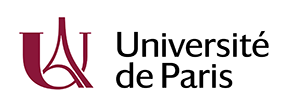Universities in France and São Paulo invest in international collaboration
Research internationalization strategies was the topic of a roundtable at FAPESP Week France, in Lyon; representatives from USP, UNESP, UNICAMP, and French universities took part in the debate.
 By Maria Fernanda Ziegler, from Lyon | Agência FAPESP – International collaboration is a way of increasing the quality of research and competitiveness of universities, so much that higher education institutions around the world are adopting strategic internationalization plans that combine not only student and teacher mobility, but also collaboration in research projects.
By Maria Fernanda Ziegler, from Lyon | Agência FAPESP – International collaboration is a way of increasing the quality of research and competitiveness of universities, so much that higher education institutions around the world are adopting strategic internationalization plans that combine not only student and teacher mobility, but also collaboration in research projects.
“Recently, we conducted an analysis of our partners, highlighting strengths and weaknesses, and identified that, although we had many agreements, few were really active. We then focused on partnerships with a few universities, but with important actuation and in the research areas where we are strong,” said Stéphane Riou, pro-rector of Research at the Université Jean Monet Saint-Étienne (France), during a roundtable on international collaboration strategies held last Thursday (11/21), during FAPESP Week France.
According to Riou, despite the French university having around 170 collaboration agreements, only 25 were really active. “We carried out a study to explain to the scientific community the revision of our strategy and have guaranteed investment in new collaborations,” he said.
Unlike the Université Jean Monet Saint-Étienne, the University of Campinas (UNICAMP) in Brazil does not define priority research areas when seeking partnerships, since its international collaboration strategy is focused on the choice of partner institution.
“Our strategy involves forming partnerships with universities that have the same size and the same research spirit. This is how we form partnerships with universities in France and other countries. For this, we invest in events that put researchers in contact with each other. The expectation is that one or two years after these meetings new quality partnerships will emerge,” said Munir Skaf, pro-rector of Research at UNICAMP.
Skaf pointed to the 14 Engineering Research Centers (ERCs) formed by FAPESP in partnership with businesses and housed at universities and research institutes as a model for collaboration. At the ERCs, projects last up to 10 years and the resources are divided as follows: FAPESP contributes one part, the partner company contributes an equivalent part, and the universities contribute two parts (cost of physical installations and human resources).
At Université Claude Bernard Lyon innovation is the focus, commented Anne Giroir-Fendler, pro-rector of International Mobility at the institution. “We are the most innovative university in France, since proportionally we have the highest number of patents in the country. Our aim is to develop long-term collaborations with universities inside and outside France. For this, we also schedule meetings and visits from foreign researchers to our laboratories,” she said.
Representatives from the University of São Paulo (USP) and the São Paulo State University (UNESP) have indicated their institutions’ preferences for long-term agreements.
At USP, for example, the partnerships with universities in France have shown positive results for both sides. “The articles published by scientists from USP have, on average, an impact of 1.22. But, in those with co-authorship by French researchers, this factor rises to 5.70. As can be seen, there is important, solid, and very efficient joint scientific production both for USP and for the French universities,” said Carlos Gilberto Carlotti Jr., pro-rector of Post-Graduation at USP.
According to Carlotti, in the last three years, 2,192 papers with authors from USP and France have been published, which represents 9.1% of the university’s academic production with international co-authorship. Of that total, 239 (10%) have co-authorship with professors from the University of Lyon.
“An important characteristic of this collaboration is the presence of interdisciplinary papers and of authors from different countries. Generally, this involves high-impact articles related to global problems,” said Carlotti.
At UNESP, in the last 10 years, international partnerships in the research conducted have risen from 5% to 37%. For Carlos Graeff, pro-rector of Research at the institution, this is due to the strategic plan created to encourage internationalization.
Mobility and exchange
There is also an interest in the mobility of students and teachers. Guillaume Rousset, pro-rector of International Relations of the Université Jean Moulin Lyon 3, where FAPESP Week France is being held, highlighted the main tools for student and teacher exchange, such as the Offshore Program.
“In this program, it is possible for the student to remain in São Paulo and the mobility involves the teacher. This is interesting for the Brazilian students, who earn a double diploma, and for the partner universities, since it is tool for competitiveness,” he said.
The FAPESP Week France symposium is taking place between November 21st and 27th, thanks to a partnership between FAPESP and the Universities of Lyon and Paris, both in France. Read other news about the event at www.fapesp.br/week2019/france/.
Photo credit: Maria Fernanda Ziegler / Agência FAPESP




